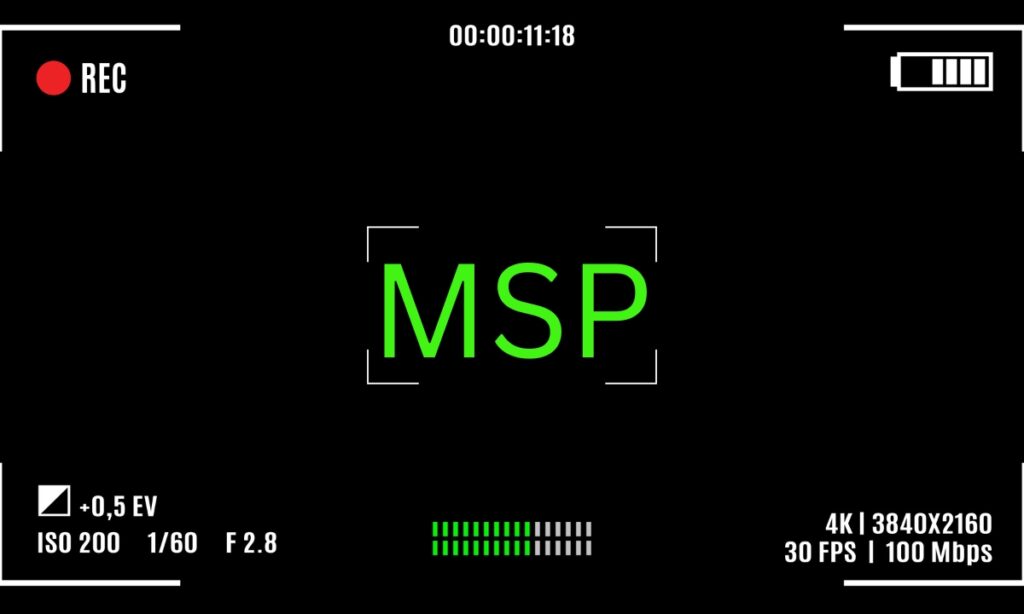Let’s face the facts – efficient IT support is crucial for smooth operations and customer satisfaction. Outsourced IT help desk and managed support services have emerged as reliable solutions for businesses seeking expertise and cost-effective IT support.
Outsourcing IT help desk services involves entrusting the management of technical support and issue resolution to a specialized provider. This allows businesses to tap into a wealth of experience, round-the-clock support, and access to advanced technologies without the need for an in-house IT team.
Managed support services, on the other hand, encompass a broader range of proactive IT management in San Francisco, including network monitoring, security enhancements, system maintenance, and strategic planning. By outsourcing these tasks to a managed service provider (MSP), businesses can offload the burden of IT operations, focus on core activities, and leverage expert guidance for long-term IT growth.
So today, we will talk about the benefits of outsourcing IT help desk and managed support services. We will explore cost savings, access to specialized expertise, improved customer support, and enhanced IT infrastructure. Join us as we uncover the advantages of outsourcing IT support and guide you in selecting the right MSP for your business’s unique needs.

Understanding Outsourced IT Help Desk Services
Definition and scope of outsourced IT help desk services:
Outsourced IT help desk services involve partnering with a specialized provider to handle technical support and issue resolution for a business. These services encompass a wide range of IT support functions, including handling user inquiries, troubleshooting technical problems, and providing guidance and solutions.
Key benefits of outsourcing IT help desk:
1. Cost savings and scalability: Outsourcing IT help desk services allows businesses to reduce overhead costs associated with hiring, training, and maintaining an in-house IT support team. With outsourced services, businesses can scale their support resources up or down as needed, ensuring optimal support without the financial burden of full-time employees.
2. Access to specialized expertise: MSPs offering IT help desk services possess deep technical knowledge and expertise across various technologies and industries. This expertise ensures efficient issue resolution, quicker response times, and access to best practices and industry standards.
3. Improved customer support and satisfaction: Outsourced IT help desk services provide prompt and reliable support to end-users, enhancing customer satisfaction. Skilled technicians with excellent communication skills ensure smooth interactions, timely problem resolution, and a positive user experience.
4. 24/7 support and faster issue resolution: MSPs often offer round-the-clock support, providing assistance and resolving IT issues outside traditional business hours. This ensures uninterrupted operations, minimizes downtime and boosts productivity.
Role of managed service providers (MSPs) in delivering IT help desk services:
Managed service providers play a crucial role in delivering outsourced IT help desk services. They employ teams of skilled professionals who are trained to handle diverse technical issues. These experts utilize advanced tools and technologies to efficiently manage and resolve IT problems, ensuring optimal performance and minimizing disruptions.
The fact of the matter is, outsourcing IT help desk services brings cost savings, access to specialized expertise, improved customer support, and faster issue resolution. Next, we will talk about the advantages of managed support services, providing comprehensive IT management and proactive support for businesses.

Exploring Managed Support Services
Definition and scope of managed support services:
Managed support services encompass a comprehensive approach to IT management and support provided by managed service providers (MSPs). These services go beyond traditional break-fix support and focus on proactive monitoring, maintenance, and optimization of a business’s IT infrastructure. Managed support services cover a wide range of areas, including network management, security, data backup, software updates, and strategic IT planning.
Advantages of managed support services:
1. Proactive monitoring and maintenance: MSPs monitor the client’s IT systems 24/7, using advanced tools and technologies to identify potential issues before they cause significant disruptions. Proactive maintenance ensures optimal performance, minimizes downtime, and prevents costly IT emergencies.
2. Enhanced security and data protection: Managed support services prioritize the security of a business’s IT infrastructure. MSPs implement robust security measures such as firewall management, antivirus updates, intrusion detection, and vulnerability assessments to protect against cyber threats and data breaches.
3. Network optimization and performance improvement: MSPs analyze and optimize the client’s network infrastructure to ensure maximum efficiency and performance. This includes bandwidth management, traffic optimization, and implementing Quality of Service (QoS) measures to prioritize critical applications.
4. Predictable IT budgeting and cost control: With managed support services, businesses can establish predictable IT budgets through fixed monthly fees or tailored service packages. This allows businesses to control costs effectively and allocate resources strategically, avoiding unexpected IT expenses.
Comprehensive IT support and management offered by MSPs:
Managed service providers offer comprehensive IT support and management, acting as an extension of a business’s internal IT department. They provide technical expertise, strategic guidance, and ongoing support, enabling businesses to focus on their core competencies while relying on the MSP’s expertise to handle complex IT tasks.
In summary, managed support services offer proactive monitoring, enhanced security, network optimization, and cost control. MSPs deliver comprehensive IT support and management, allowing businesses to offload IT responsibilities and access specialized expertise. In the next section, we will explore the specific benefits of outsourcing IT help desk and managed support services for businesses.

Benefits of Outsourcing IT Help Desk and Managed Support Services
Improved focus on core business activities:
By outsourcing IT help desk and managed support services, businesses can redirect their internal resources and focus on core business activities. This shift allows employees to concentrate on strategic initiatives, innovation, and revenue-generating tasks, rather than getting caught up in day-to-day IT support and maintenance. With the burden of IT management lifted, businesses can allocate their time and energy more effectively.
Access to a wider range of IT resources and technologies:
Managed service providers bring a wealth of IT resources and technologies to the table. They have the expertise, experience, and access to the latest tools and solutions needed to address complex IT challenges. Businesses can leverage these resources without the need to invest heavily in acquiring and maintaining their own IT infrastructure. This access to a wider range of resources and technologies empowers businesses to stay competitive, embrace digital transformation, and implement advanced IT solutions.
Minimized downtime and increased productivity:
Outsourcing IT help desk and managed support services ensures that IT issues are addressed promptly and efficiently. With proactive monitoring and regular maintenance, potential problems are identified and resolved before they escalate into major disruptions. This proactive approach minimizes downtime, improves system availability, and maximizes employee productivity. Businesses can rely on the expertise of MSPs to keep their IT environment stable, secure, and operational.
Enhanced IT infrastructure and reduced risks:
Managed support services provide businesses with a comprehensive approach to IT management. MSPs assess, optimize, and maintain the IT infrastructure to ensure it aligns with industry best practices and security standards. By reducing risks associated with cybersecurity threats, system failures, and data loss, businesses gain peace of mind knowing their IT environment is well-managed and protected.
Cost savings and optimized IT budget:
Outsourcing IT help desk and managed support services offer cost-saving advantages. With predictable monthly fees or customized service packages, businesses can plan their IT budget effectively. MSPs eliminate the need for capital investments in hardware, software, and infrastructure upgrades, reducing upfront costs. Additionally, businesses can avoid hiring and training costs associated with maintaining an in-house IT team. Overall, outsourcing allows for better cost control and optimized allocation of resources.
In conclusion, outsourcing IT help desk and managed support services offer numerous benefits, including an improved focus on core activities, access to a wider range of IT resources, minimized downtime, enhanced IT infrastructure, and cost savings. By partnering with a reputable managed service provider, businesses can streamline their IT operations, increase productivity, and gain a competitive edge in today’s technology-driven business landscape.

Selecting the Right Managed Service Provider (MSP)
Factors to consider when choosing an MSP:
Selecting the right managed service provider is crucial for a successful partnership. Consider the following factors during the evaluation process:
1. Experience and expertise: Look for an MSP with a proven track record and extensive experience in providing IT help desk and managed support services. Assess their expertise in relevant technologies, industries, and their ability to handle specific challenges your business may face.
2. Service offerings and flexibility: Evaluate the range of services offered by the MSP to ensure they align with your business requirements. Consider their flexibility in tailoring solutions to your unique needs and ability to scale services as your business grows.
3. Security measures and data protection: Data security is paramount. Assess the MSP’s security protocols, compliance measures, and their commitment to protecting your sensitive business data and intellectual property. Inquire about their disaster recovery and business continuity plans as well.
4. Scalability and future growth: Choose an MSP that can support your business’s growth trajectory. Ensure they have the scalability and resources to accommodate your expanding IT needs, such as adding new locations, increasing user counts, or adopting emerging technologies.
Evaluating the provider’s reputation and client testimonials:
Research the reputation of the MSP by checking reviews, testimonials, and case studies. Look for feedback from their existing clients to gauge their level of satisfaction and the MSP’s ability to deliver on their promises. Additionally, consider requesting references and contacting current clients directly to gain more insights.
Understanding pricing models and contract terms:
Evaluate the MSP’s pricing models to ensure they align with your budget and provide value for the services offered. Understand the contract terms, including the length of the agreement, termination clauses, and any hidden fees. Clarify the scope of services, response times, and service level agreements (SLAs) to set clear expectations.
Selecting the right managed service provider is critical for a successful partnership. Consider factors such as experience, service offerings, security measures, scalability, reputation, and pricing models. By choosing a reliable MSP that aligns with your business needs, you can ensure seamless IT support, enhanced security, and optimized IT operations. Contact us at [MSP’s contact information] for a consultation and learn how our managed services can benefit your business.

Conclusion
We live in a technology-dependent business environment where outsourcing IT help desk and managed support services bring numerous benefits to organizations. By partnering with a reputable managed service provider, businesses can optimize their IT operations, improve productivity, and focus on their core competencies.
Outsourcing IT help desk services provide cost savings, access to specialized expertise, improved customer support, and faster issue resolution. Managed support services offer proactive monitoring, enhanced security, network optimization, and predictable IT budgeting. Together, these services ensure a stable, secure, and efficient IT environment.
When selecting a managed service provider, consider factors such as experience, service offerings, security measures, scalability, reputation, and pricing models. By choosing the right MSP, you can forge a successful partnership and experience the full benefits of outsourced IT support.
Don’t wait to streamline your IT operations and boost your business’s success. Call 911 PC Help at 415-800-1130 for immediate assistance or schedule a free consultation with our experts. Let us handle your IT challenges while you focus on driving your business forward.
